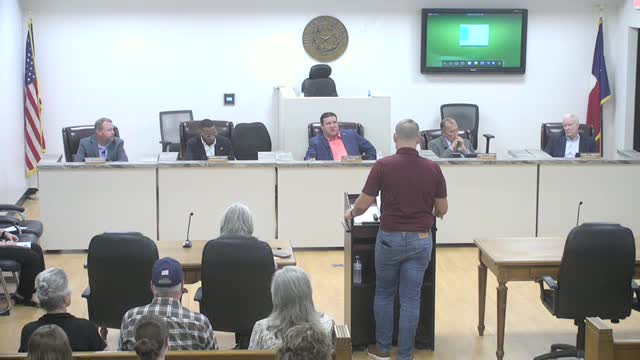Waller County ESD 200 Discusses Sales Tax to Fund Infrastructure and Emergency Services
August 06, 2025 | Waller County, Texas
This article was created by AI summarizing key points discussed. AI makes mistakes, so for full details and context, please refer to the video of the full meeting. Please report any errors so we can fix them. Report an error »

In a recent workshop held by the Waller County Commissioners Court, officials discussed the potential benefits of a proposed sales tax increase in unincorporated areas of the county. Currently, Waller County has access to only 1% of the 2% sales tax available for emergency services, which has generated over $7 million in revenue for the Emergency Services District (ESD) in the past year. This funding is crucial for enhancing public safety and infrastructure, particularly as the county experiences rapid growth.
The proposed increase would allow residents in unincorporated areas to contribute an additional penny per dollar in sales tax on taxable purchases. This revenue would be earmarked for local needs, including road maintenance, law enforcement, and emergency services. Officials emphasized that this tax would not only be paid by residents but also by visitors and new residents who shop in the area, thereby distributing the financial burden more evenly.
The discussion highlighted the pressing infrastructure needs in Waller County, which has identified over 50 mobility projects requiring funding. With a recent mobility bond only able to address 25 of these projects, the additional sales tax revenue could significantly aid in meeting these demands. Officials noted that as new neighborhoods develop, the immediate influx of sales tax from new residents would help alleviate the financial strain on property owners, who currently bear the brunt of funding local services through property taxes.
Moreover, the meeting underscored the importance of keeping sales tax revenue within Waller County rather than allowing it to flow to the state. By establishing a County Assistance District (CAD), the county aims to ensure that funds generated from local sales are reinvested into community services, such as vocational training centers that could provide essential skills for high school graduates entering the workforce.
As Waller County continues to grow, the proposed sales tax increase represents a strategic move to enhance local infrastructure and services while sharing the financial responsibility with a broader base of contributors. The Commissioners Court will continue to explore this initiative, aiming to address the community's needs effectively.
The proposed increase would allow residents in unincorporated areas to contribute an additional penny per dollar in sales tax on taxable purchases. This revenue would be earmarked for local needs, including road maintenance, law enforcement, and emergency services. Officials emphasized that this tax would not only be paid by residents but also by visitors and new residents who shop in the area, thereby distributing the financial burden more evenly.
The discussion highlighted the pressing infrastructure needs in Waller County, which has identified over 50 mobility projects requiring funding. With a recent mobility bond only able to address 25 of these projects, the additional sales tax revenue could significantly aid in meeting these demands. Officials noted that as new neighborhoods develop, the immediate influx of sales tax from new residents would help alleviate the financial strain on property owners, who currently bear the brunt of funding local services through property taxes.
Moreover, the meeting underscored the importance of keeping sales tax revenue within Waller County rather than allowing it to flow to the state. By establishing a County Assistance District (CAD), the county aims to ensure that funds generated from local sales are reinvested into community services, such as vocational training centers that could provide essential skills for high school graduates entering the workforce.
As Waller County continues to grow, the proposed sales tax increase represents a strategic move to enhance local infrastructure and services while sharing the financial responsibility with a broader base of contributors. The Commissioners Court will continue to explore this initiative, aiming to address the community's needs effectively.
View full meeting
This article is based on a recent meeting—watch the full video and explore the complete transcript for deeper insights into the discussion.
View full meeting
